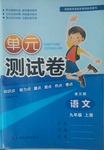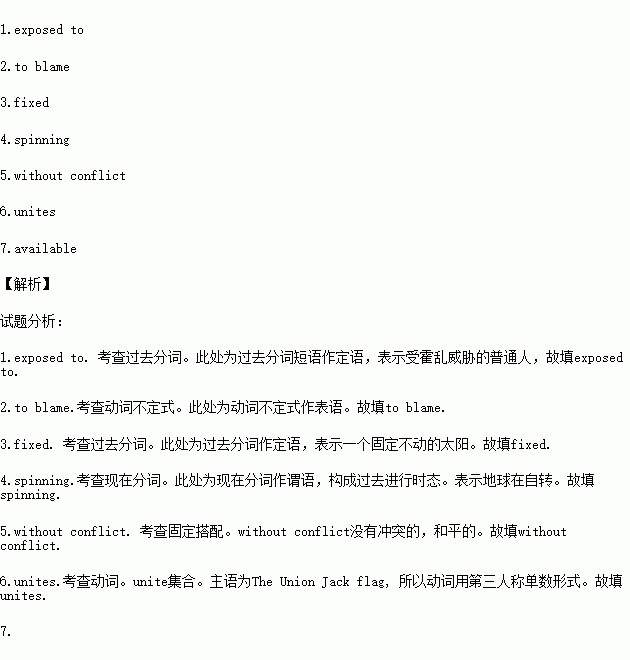题目内容
1.受霍乱威胁的普通人 ordinary people __________ __________ cholera
2.看来水是罪魁祸首。It seemed that the water was __________ __________.
3.他在太阳系的中心放了一个固定不动的太阳。
He placed a __________ sun at the centre of the solar system.
4.地球绕着太阳转时本身也在自转。
The earth was __________ as it went round the sun.
5.令人庆幸的是这是和平实现的。
Happily this was accomplished __________ __________.
6.英国国旗集合了三个国家的国旗。
The Union Jack flag __________ the flags of three countries.
7.她担心时间不够。
She is worried about the time __________.
练习册系列答案
 阳光试卷单元测试卷系列答案
阳光试卷单元测试卷系列答案
相关题目


